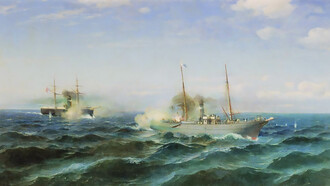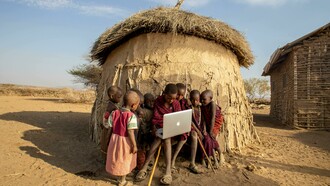The first time I traveled to Spain for a meeting, as a cocalero union leader, at the Madrid airport the police asked me to show the US$ 500 required to cover my expenses. I pointed out that in my life I had never seen that sum of money, that I had been invited and asked them to grant me one dollar for each year of the 500 that their ancestors have exploited us. They let me in.
(Evo Morales)
Changing history
The first indigenous President of Bolivia, Evo Morales Ayma, ruled for 13 years and 10 months until last November 10, 2019, when he was forced to resign and exile in Mexico, at the request of the armed forces after a questioned presidential election which had him looking for his fourth reelection. Evo Morales went from being a cocalero union leader in the ‘80s, to becoming a deputy in 1997, until he reached the presidency of the republic in 2006, in a country formed by 62% of native population, 28% of mestizos and 10% of whites.
Since its independence in 1825, Bolivia has been governed by 122 presidents, military boards or dictators, which gives an average of one year and a half to each government. Morales was the president who has remained in power for the longest time, beating Marshal Andrés de Santa Cruz (1829-1839) or Víctor Paz Estenssoro, who ruled 4 times (1952-1958, 1960-1964; re-elected and overthrown that same year by a military coup, and then again from 1985-1989). Therefore, Evo Morales is not only the president who has uninterruptedly ruled Bolivia for more than a decade, but who has increased political stability, economic growth and social justice more, by far, for its inhabitants.
Highlights
In his first 100 days of government in 2006, Evo nationalized Bolivia's hydrocarbons that had been privatized in an act of popular capitalism by former President Gonzalo Sánchez de Lozada, a wealthy businessman who failed to conclude his second presidency and resigned by writing a letter to the Congress after a disastrous economic management, taking refuge in the United States. Upon returning the oil and gas to be controlled by the Bolivian State again, Morales declared: "The looting of the natural resources of Bolivia is over," adding its Vice President, Álvaro García Linera: "The tortilla was turned: if the oil companies carried 82% away and the state company, Yacimientos Petrolíferos Fiscales Bolivianos (YPFB), 18%, from today onwards it will be the other way around.” And so it has been. This was one of the fundamental measures so that Bolivia's GDP that reached 9 billion US$ in 2006, has reached 40 billion today, which means that its corrected per capita income rose from 4,778 US$ to more than 7,000 US$ today. This has also influenced the reduction of inequality, which according to the Gini index fell from 0.60 to 0.47. The good management of fiscal resources, together with the boom in the prices of raw materials, has achieved that in 13 years poverty was reduced from 60% to 35%, and extreme poverty from 38% to 15%. In the indicated period, the growth rate of the economy has been 4.9%, reducing illiteracy, malnutrition, infant mortality, enhancing school coverage and adding a long list of social benefits for the majority of the population. Most importantly, Morales has given dignity to his people by recognizing being a plurinational state, where 37 languages are spoken including Spanish, fully claiming the diverse traditional clothes and cultures.
Downsides
President Evo Morales quickly aligned Bolivia with Venezuela, in the Bolivarian wave of Commander Chavez. He traveled many times to Cuba, where Fidel treated him like a son, he approached President Lula, the Kirchners in Argentina, President Correa in Ecuador, had a good relationship with President Bachelet, made his country join ALBA and MERCOSUR, financed the building that would house the UNASUR Parliament - inaugurated in 2018 at a cost of 61.7 million dollars - and initiated a lawsuit against Chile at the International Court of Justice of The Hague, for the maritime claim. Today Bolivia is not a member of ALBA, the UNASUR Parliament never met in the brand-new building due to the political crisis of the agency, and the government lost its case against the Chilean State. Bolivia initially had 2,363,769 km2, but in the course of the nineteenth and twentieth centuries lost more than half of its territory in wars and border conflicts with its five neighbors. With Peru it lost 250,000 km2, with Argentina 170,758, with Brazil 490,430, with Paraguay 234,000 and with Chile 120,000. The defeat in a war with Chile, although it is the smallest in extension, is the most painful for the Bolivian people because it meant the loss of its coastline. The instability, together with the ambition of power and the bad policy exercised mainly by the white minority that has ruled Bolivia, is responsible for it being still one of the poorest countries in the region. President Morales began a path that was truncated by his own ambition to want to eternalize in power. He called a plebiscite in February 2016 to ask Bolivians if he could modify the Constitution and be a candidate again for the fourth time. He lost it clearly with 51.3% against 48.7%. Then he sought a loophole by going to the Supreme Court of Justice which authorized his indefinite reelection, ignoring the popular will, on the grounds that the American Convention on Human Rights enshrines the political rights of people over other norms. That was the beginning of the end of his presidency. Former President Lula summed it up well: "My friend Evo made a mistake when he sought a fourth term as president, but what they did to him was a crime, a coup d'état."
The future
In Latin America it has happened several times that an ousted president, leader or dictator returns to his country and governs again. Of course, not always with good results. Bolivia, located in the heart of South America, is rich in natural resources and where big international companies seek to make bets, as happens today with lithium, which is one of the largest reserves in the world and is vital for manufacture of electric batteries. The United States, the old gendarme of the region, has never been oblivious to what happens there. The current administration of President Trump has expressly indicated that he does not like China's interest in investing or associating for the extraction of natural resources, such as lithium in Bolivia, or other countries in Latin America. In the ‘60s, Che Guevara chose the country to start the guerrilla that should spread throughout the continent, convinced that the conditions of poverty and abandonment would be his best ally to extend the liberation war.
We all know how his revolutionary adventure ended. Today Bolivia must look to the future and not abandon the path initiated by Evo Morales. The economic and social achievements of his government will not be forgotten, because for the first time in its history it prioritized the dignity of people abused and humiliated for centuries of exploitation.















